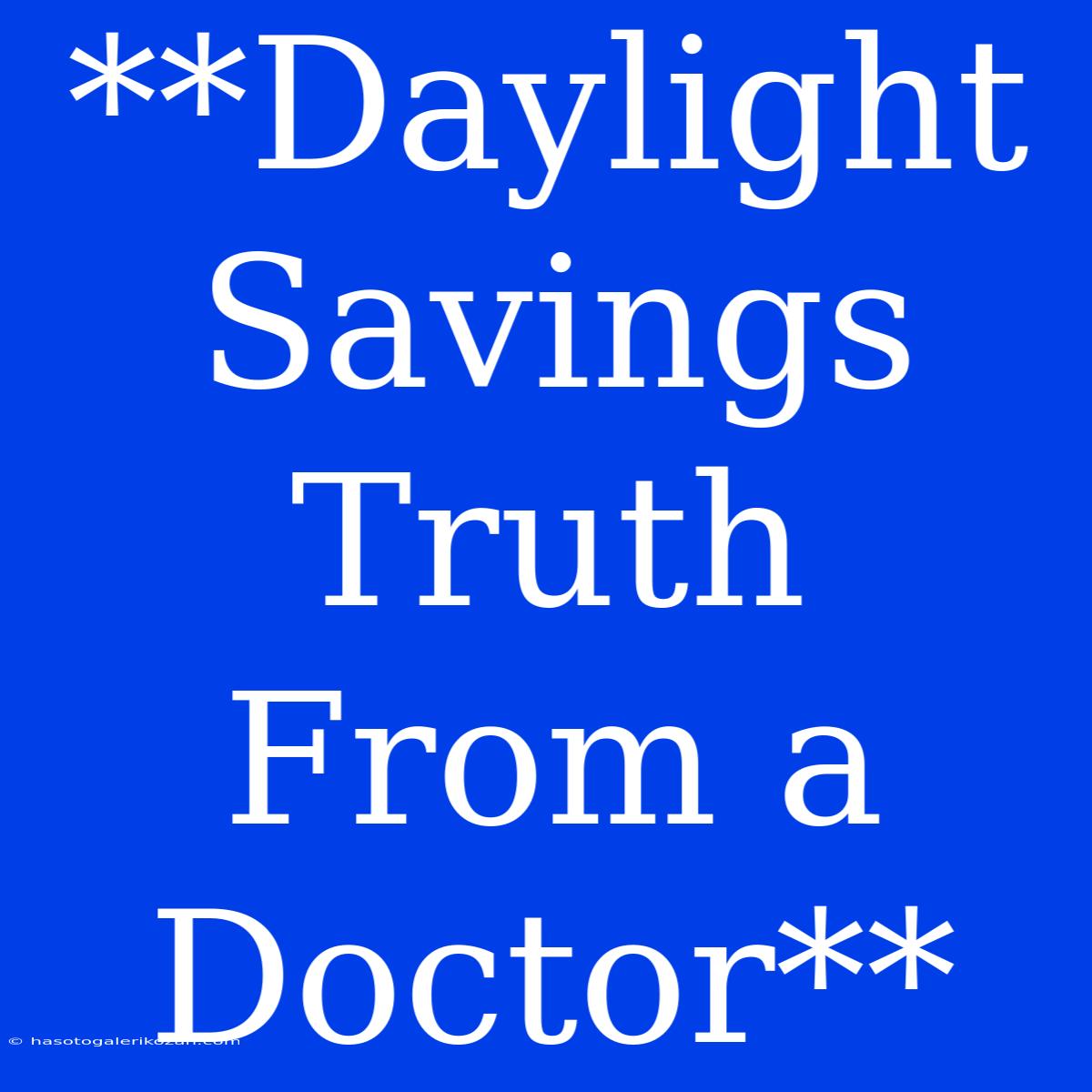Daylight Savings Time: A Doctor's Perspective on the "Spring Forward" Health Impacts
Daylight Saving Time (DST) is a familiar phenomenon that many of us embrace as a welcome shift toward longer evenings and more daylight hours. However, as a medical professional, I have a different perspective on this twice-a-year ritual. While the idea of extended sunshine might seem appealing, the reality is that DST can negatively impact our health and well-being.
The Biological Clock Disruption
Our bodies are designed to operate on a natural circadian rhythm, dictated by the rising and setting of the sun. This internal clock regulates sleep, hormone production, and numerous other bodily functions. DST disrupts this natural rhythm, forcing our bodies to adjust to an artificial schedule.
The consequences of this disruption can be significant:
- Sleep Deprivation: The shift in sleep-wake patterns can lead to sleep deprivation, resulting in fatigue, irritability, and reduced cognitive function. This can impact work performance, driving safety, and overall quality of life.
- Increased Risk of Accidents: Studies have shown an increase in accidents, particularly car accidents, during the transition periods of DST. This is likely due to the sleep deprivation and altered alertness levels caused by the time change.
- Mood Disorders: The disruption to our circadian rhythm can also exacerbate mood disorders like depression and anxiety. The reduced exposure to sunlight during the winter months, combined with the stress of adjusting to DST, can further amplify these conditions.
- Cardiovascular Issues: Some research suggests a link between DST and an increased risk of heart attacks and strokes. While the exact mechanism is not fully understood, the stress on the cardiovascular system from the time change may play a role.
Beyond the Biological Impacts
The potential health consequences of DST extend beyond our bodies. The shift in our schedules can also have social and economic impacts:
- Productivity Loss: Sleep deprivation and reduced cognitive function due to DST can lead to decreased productivity at work and school.
- Increased Healthcare Costs: The rise in accidents and health conditions linked to DST can strain the healthcare system and increase medical expenses.
The Doctor's Verdict
While DST might seem like a harmless way to enjoy longer daylight hours, the evidence suggests that it can have detrimental effects on our health and well-being. The disruption to our natural circadian rhythm can lead to sleep deprivation, increased risk of accidents, mood disorders, and potentially even cardiovascular issues.
It is crucial to be aware of these potential consequences and take steps to mitigate the negative impacts of DST, such as:
- Gradually adjust your sleep schedule: A few days before the time change, try to shift your bedtime and wake-up time by 15 minutes each day to minimize the disruption.
- Prioritize consistent sleep habits: Ensure you maintain a regular sleep schedule, even during non-DST periods, to strengthen your body's natural rhythm.
- Optimize your sleep environment: Create a calm and conducive sleep environment by ensuring darkness, coolness, and quiet in your bedroom.
- Limit exposure to screens before bed: The blue light emitted from electronic devices can interfere with melatonin production, disrupting sleep.
By acknowledging the potential drawbacks of DST and taking steps to protect our health, we can minimize the negative impacts of this seasonal shift. Remember, our bodies are designed to operate on a natural rhythm, and it is important to respect and support this internal clock for our overall well-being.
